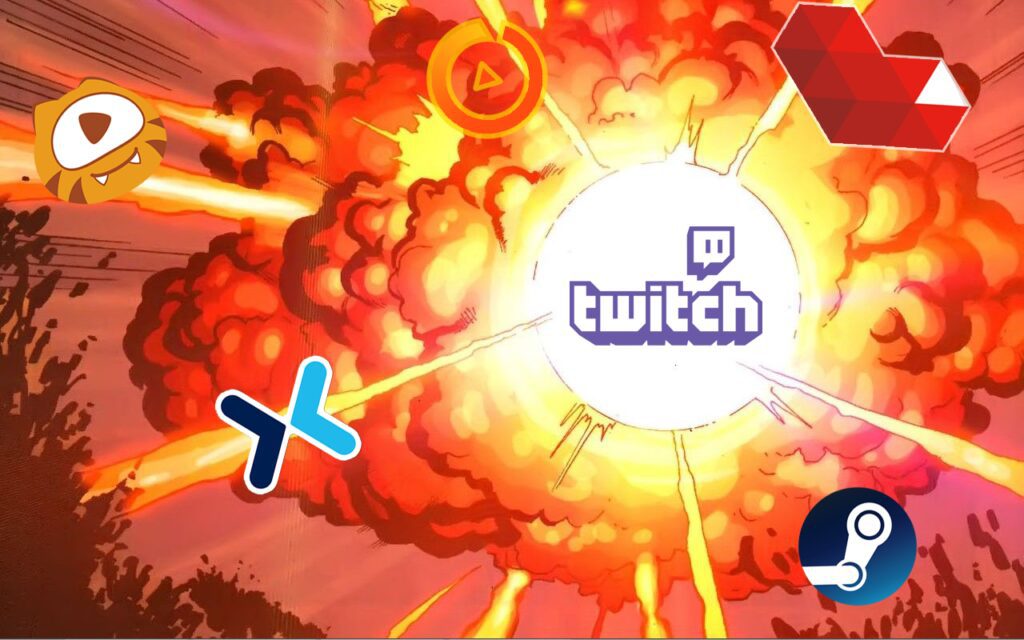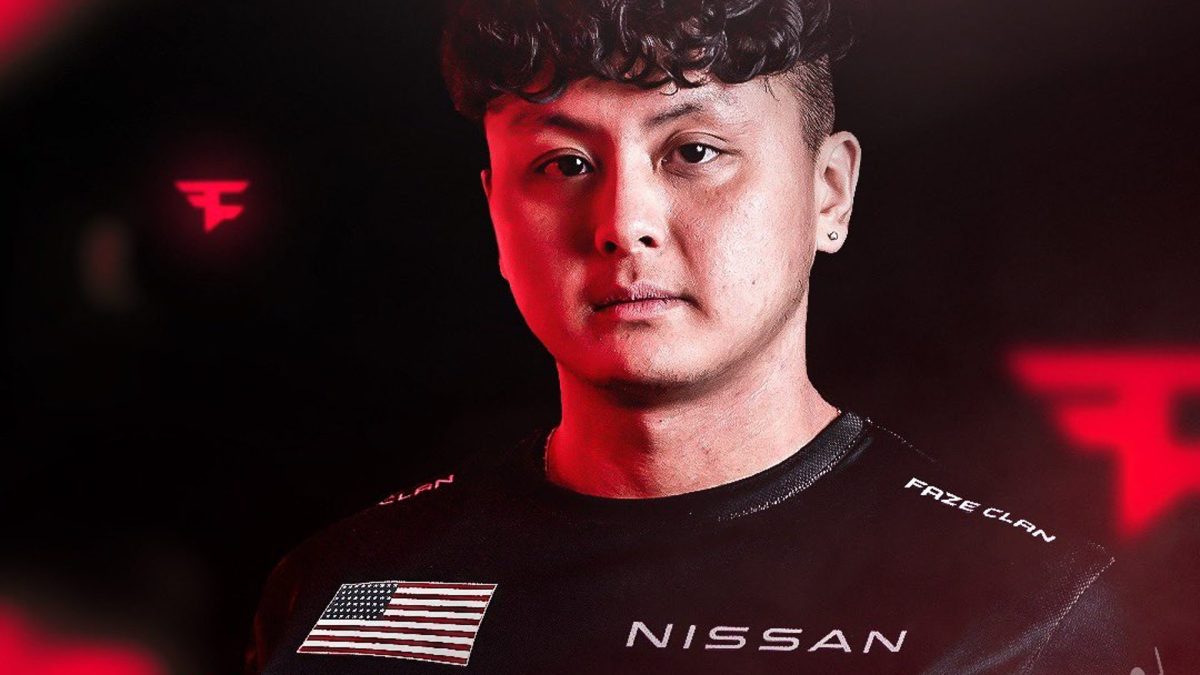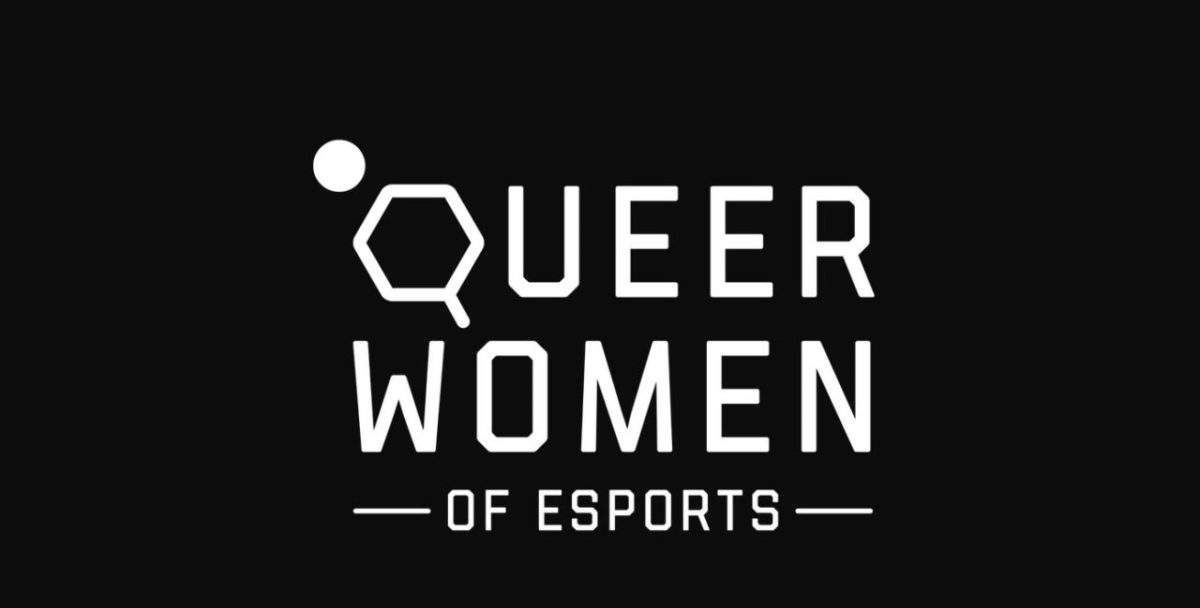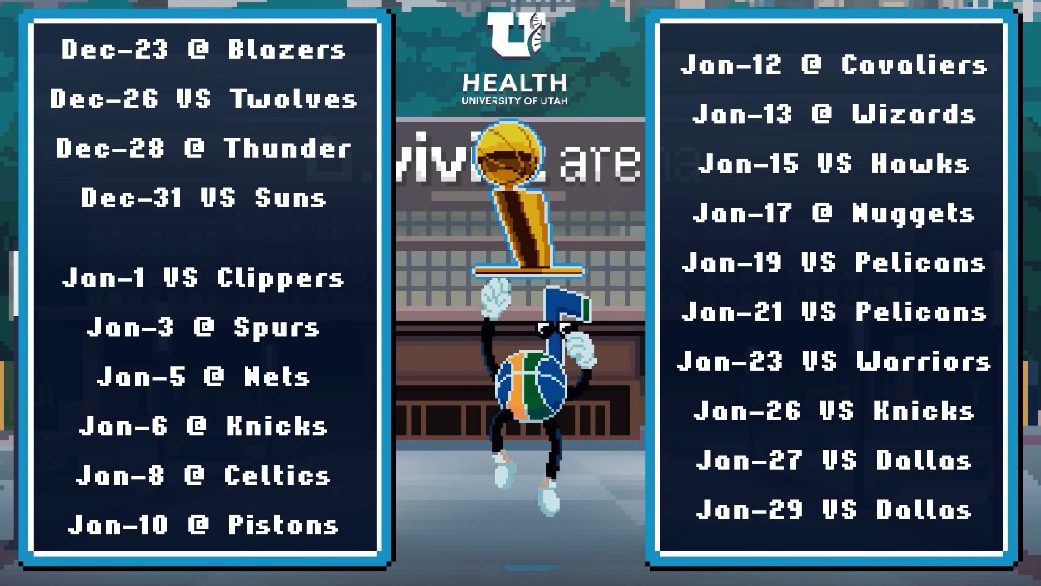Don’t worry — I’m not suggesting Twitch is going anywhere soon with that title. It’s a great platform that has only gotten better since earning the public spotlight with the runaway success of “Twitch Plays Pokemon” in 2014, and I’m sure they’re going to continue to be the main hub for esports as long as they’re the king of streaming. But there’s more to an esport than just the broadcast. By looking at traditional sports leagues as a model, I can see a couple of angles Twitch isn’t already covering. And more importantly, rival platforms are already exploring these angles in the hopes of cornering their slice of the market. Here are five potential Twitch competitors we may hear more from in the times to come.
1. Mixer

The first competing site that caught my eye is Mixer. Mixer is Microsoft’s attempt to create their own Twitch-style streaming platform. It hasn’t really succeeded in beating Twitch at its own game, but there are two reasons I consider it a site to look out for: Firstly, Microsoft’s HypeZone technology will rapidly swap between screens, always hosting a battle royale streamer that’s within the last 5 surviving players of their match. There are already channels for PUBG, Fortnite, Apex Legends, and several other leading BRs. It’s honestly an entrancing way to watch BRs for those of us who only want to see the high-stakes endgames.
As one journalist already noted, Mixer’s HypeZone is very reminiscent of the NFL’s Red Zone feature, and I think there are huge applications for such technology in the realm of real-time highlight-focused content. Twitch’s closest thing is its Clip feature, which requires humans selecting and posting the best moments on social media. This is a far cry from automated instantaneous streams of the best moments.
From viewer to participant

But even more important than HypeZone is the second reason I think Mixer is worth keeping an eye on: the HTML SDK. Unlike Twitch, Mixer allows viewers to interact directly with the gameplay in supported streams. Streamers can add buttons and polls that allow the users to change what’s happening in-game. “Crowdplay games” are those that directly allow viewers to take control of avatars and play alongside the streamer. The interactivity is far and away higher than the chat-only features currently supported by certain Twitch channels like SaltyBet. The potential for this technology in the esports arena is huge. I think that Mixer has the most potential when it comes to fantasy esports leagues and other pseudo-gambling circles. And as the technology progresses, Mixer will possibly be able to host tournaments that directly star viewers taken from the audience.
After all, Twitch does such a good job with the standard viewing experience. Competitors, therefore, need to explore alternate focuses to fill a niche. Speaking of which…
2. YouTube
YouTube is the only site on this list attempting to directly encroach on Twitch’s primary audience. I’m personally very interested in whether it will be able to nudge its way into Twitch’s domain. Both companies have been steadily increasing their competing services for a while; Twitch allows semi-permanent video storage via the Highlight feature, and YouTube is aggressively promoting its streaming service. If YouTube can get its act together, I think it has several important selling points that can give it an edge over Twitch. The two big ones are brand recognition and ease of video storage in volume. Its biggest downside is its draconian copyright policies that are turning content creators off the platform. This largely turns away any potential esport communities that aren’t corporate-controlled, like the Overwatch League. However, I’ve already mentioned I think OWL-style leagues are the future, so YouTube can potentially overcome these issues.
Of course, YouTube (and Twitch) also need to look out for the possibility that future esports leagues will take streaming into their own hands.
3. YouPorn
I know this looks odd, but I actually believe that esports may one day have an adult-oriented peripheral league that doesn’t have to worry about being family-friendly. This largely stems from my belief that OWL-style leagues are the future, and most corporations want to keep a family-friendly appearance since underage gamers are a huge market for esport-style games. Most of the biggest names in esports (Blizzard, Riot, Twitch, Valve) insist on keeping things family-friendly. YouPorn, in contrast, has endorsed NSFW tournaments and fielded prize-winning professional teams since 2014. With modern esports unanimously embracing the childsafe experience, a counterpart adult league is an untapped market and YouPorn seems to be the only website attempting to claim it.
4. League-hosted streaming sites

Esports as a whole are growing away from grassroots tournaments and community-endorsed products of passion. The success of the Overwatch League has shown that there’s a future in centralized corporate-controlled orgs that can wield unprecedented levels of organization and unity in branding. The Overwatch League tried mightily to create its own stream-hosting service so they could fully control their product, but they failed due to the uncertainty of starting out and negotiated a last-minute deal with Twitch. As time goes on and the league gets more and more popular, who’s to say they (or other leagues that follow in their footsteps) won’t leave Twitch to found their own exclusive streaming services? Exclusivity does appear to be the name of the game going forward. Epic Games exemplifies this trend by having created its own Steam competitor, as does Disney by taking Netflix head-on.
That exclusivity even extends to regional providers…
5. Asian/Chinese-hosted streaming sites
China is a huge market in esports. They have a huge esports-loving population, they formally recognize esports as a profession, and certain Chinese cities are investing heavily in becoming esports capitals of the world. But unfortunately for Twitch, Twitch is blocked in China.
The Chinese government is notoriously censor-heavy, especially when it comes to Western companies. And there are several Asian-hosted providers that are well-established in the streaming sphere already. Just like TikTok is slowly taking over the social media circuit, these Asian providers have access to a huge audience that Twitch doesn’t have access to.
In conclusion, there are so many different ways the future of esports can go. Burgeoning industries are always rife for structural changes and disruptive innovation. Heck, if something does show up and steer the scene in a new direction, it could very well be a website nobody had ever heard of. Or it could come from an unexpected avenue: Facebook just added a new “Gaming” tag to their app’s navigation bar this week. Many industries undergo rapid periods of change once they go mainstream, and esports likely will be no exception.













Published: Mar 24, 2019 02:12 pm